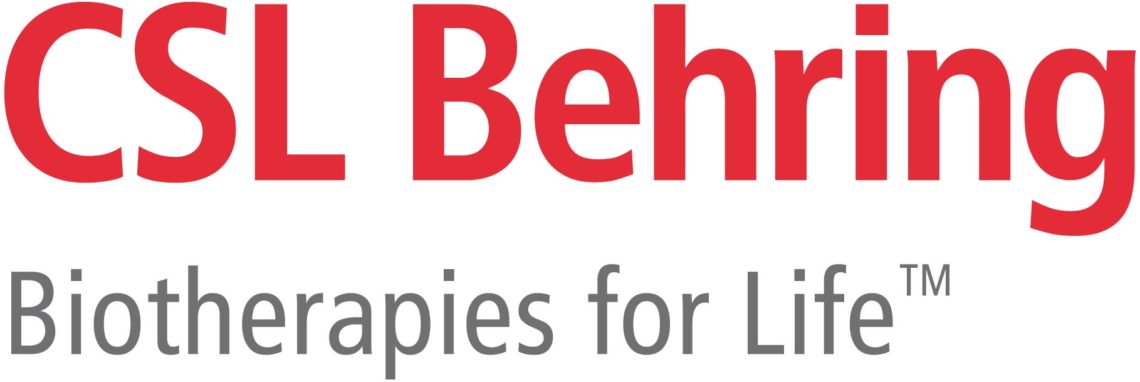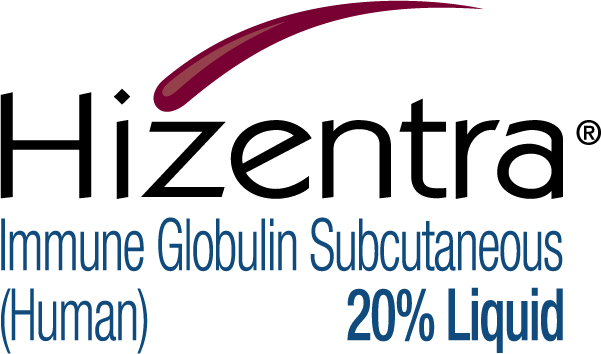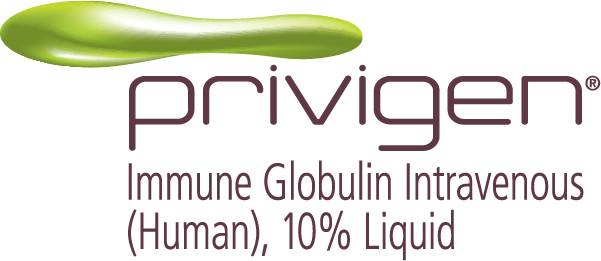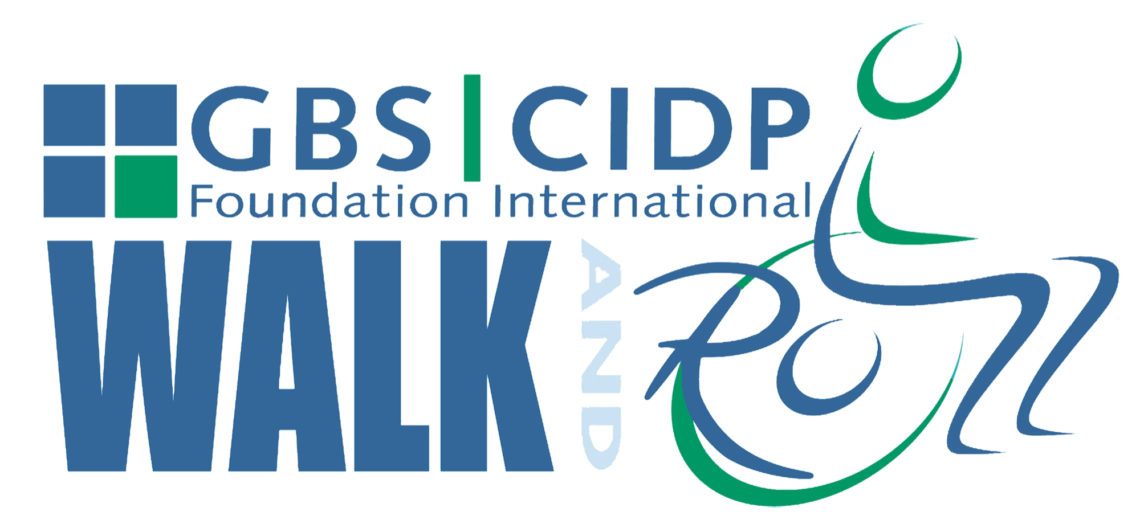
Company Information
CSL Behring is a global biotherapeutics leader driven by our promise to save lives. We meet patients’ needs using the latest technologies to develop and deliver innovative therapies. The company offers the broadest range of products in the industry for treating coagulation disorders, primary immune deficiencies, hereditary angioedema, respiratory disease, and neurological disorders. CSL Behring’s products are also used in cardiac surgery, burn treatment and to prevent hemolytic disease of the newborn.

Important Safety Information
WARNING: Thrombosis (blood clots) can occur with immune globulin products, including Hizentra. Risk factors can include: advanced age, prolonged immobilization, a history of blood clotting or hyperviscosity (blood thickness), use of estrogens, installed vascular catheters, and cardiovascular risk factors.
If you are at high risk of blood clots, your doctor will prescribe Hizentra at the minimum dose and infusion rate practicable and will monitor for signs of clotting events and hyperviscosity. Always drink sufficient fluids before infusing Hizentra.
See your doctor for a full explanation, and the full prescribing information for complete boxed warning.
Read More Safety Information
Hizentra®, Immune Globulin Subcutaneous (Human), 20% Liquid, is a prescription medicine used to treat:
- Primary immune deficiency (PI) in patients 2 years and older
- Chronic inflammatory demyelinating polyneuropathy (CIDP) in adults
Treatment with Hizentra might not be possible if your doctor determines you have hyperprolinemia (too much proline in the blood), or are IgA-deficient with antibodies to IgA and a history of hypersensitivity. Tell your doctor if you have previously had a severe allergic reaction (including anaphylaxis) to the administration of human immune globulin. Tell your doctor right away or go to the emergency room if you have hives, trouble breathing, wheezing, dizziness, or fainting. These could be signs of a bad allergic reaction.
Inform your doctor of any medications you are taking, as well as any medical conditions you may have had, especially if you have a history of diseases related to the heart or blood vessels, or have been immobile for some time. Inform your physician if you are pregnant or nursing, or plan to become pregnant.
Infuse Hizentra under your skin only; do not inject into a blood vessel. Self-administer Hizentra only after having been taught to do so by your doctor or other healthcare professional, and having received dosing instructions for treating your condition.
Immediately report to your physician any of the following symptoms, which could be signs of serious adverse reactions to Hizentra:
- Reduced urination, sudden weight gain, or swelling in your legs (possible signs of a kidney problem).
- Pain and/or swelling or discoloration of an arm or leg, unexplained shortness of breath, chest pain or discomfort that worsens on deep breathing, unexplained rapid pulse, or numbness/weakness on one side of the body (possible signs of a blood clot).
- Bad headache with nausea; vomiting; stiff neck; fever; and sensitivity to light (possible signs of meningitis).
- Brown or red urine; rapid heart rate; yellowing of the skin or eyes; chest pains or breathing trouble; fever over 100°F (possible symptoms of other conditions that require prompt treatment).
Hizentra is made from human blood. The risk of transmission of infectious agents, including viruses and, theoretically, the Creutzfeldt-Jakob disease (CJD) agent and its variant (vCJD), cannot be completely eliminated.
The most common side effects in the clinical trials for Hizentra include redness, swelling, itching, and/or bruising at the infusion site; headache; chest, joint or back pain; diarrhea; tiredness; cough; rash; itching; fever, nausea, and vomiting. These are not the only side effects possible. Tell your doctor about any side effect that bothers you or does not go away.
Before receiving any vaccine, tell immunizing physician if you have had recent therapy with Hizentra, as effectiveness of the vaccine could be compromised.
Please see full prescribing information for Hizentra, including boxed warning and the patient product information.
You are encouraged to report negative side effects of prescription drugs to the FDA. Visit www.fda.gov/medwatch, or call 1-800-FDA-1088.
You can also report side effects to CSL Behring’s Pharmacovigilance Department at 1-866-915-6958.
Product Description
Hizentra is an option for adult patients stabilized on IVIg. It’s an immunoglobulin just like IVIg, except it’s infused under your skin, not into a vein. This means you can be trained to self-infuse when and where you want, in consultation with your healthcare provider. Hizentra provides antibodies that may help block your immune system from attacking the outer layer of the nerve, called myelin. Even so, exactly how Hizentra works is not completely understood.

Important Safety Information
ARNING: THROMBOSIS, RENAL DYSFUNCTION AND ACUTE RENAL FAILURE
- Thrombosis may occur with immune globulin products, including Privigen. Risk factors may include advanced age, prolonged immobilization, hypercoagulable conditions, history of venous or arterial thrombosis, use of estrogens, indwelling vascular catheters, hyperviscosity, and cardiovascular risk factors.
- Renal dysfunction, acute renal failure, osmotic nephrosis, and death may occur with immune globulin intravenous (IGIV) products in predisposed patients. Renal dysfunction and acute renal failure occur more commonly in patients receiving IGIV products that contain sucrose. Privigen does not contain sucrose.
- For patients at risk of thrombosis, renal dysfunction or renal failure, administer Privigen at the minimum dose and infusion rate practicable. Ensure adequate hydration in patients before administration. Monitor for signs and symptoms of thrombosis and assess blood viscosity in patients at risk for hyperviscosity.
See full prescribing information for complete boxed warning.
Read More Safety Information
Privigen is contraindicated in patients with history of anaphylactic or severe systemic reaction to human immune globulin, in patients with hyperprolinemia, and in IgA-deficient patients with antibodies to IgA and a history of hypersensitivity.
In patients at risk of developing acute renal failure, monitor urine output and renal function, including blood urea nitrogen and serum creatinine.
Hyperproteinemia, increased serum viscosity, or hyponatremia can occur with Privigen. Infrequently, aseptic meningitis syndrome (AMS) may occur—especially with high doses or rapid infusion.
Hemolysis, either intravascular or due to enhanced red blood cell sequestration, may occur. Risk factors include non-O blood group and high doses. Closely monitor patients for hemolysis and hemolytic anemia.
During and shortly following Privigen infusion, elevations of systolic and diastolic blood pressure (including cases of hypertensive urgency) have been observed. These elevations resolved or significantly improved within hours with oral anti-hypertensive therapy or observation alone. Check patients for a history of hypertension and monitor blood pressure during this period.
Consider relative risks and benefits before prescribing high-dose regimen for chronic ITP and CIDP in patients at increased risk of thrombosis, hemolysis, acute kidney injury or volume overload. Monitor patients for pulmonary adverse reactions (transfusion-related acute lung injury [TRALI]).
Privigen is derived from human plasma. The risk of transmission of infectious agents, including viruses and, theoretically, the Creutzfeldt-Jakob disease (CJD) agent and its variant (vCJD), cannot be completely eliminated.
In clinical studies of patients with PI, the most common adverse reactions to Privigen, observed in >5% of subjects, were headache, fatigue, nausea, chills, vomiting, back pain, pain, elevated body temperature, abdominal pain, diarrhea, cough, stomach discomfort, chest pain, joint swelling/effusion, influenza-like illness, pharyngolaryngeal pain, urticaria, and dizziness. Serious adverse reactions were hypersensitivity, chills, fatigue, dizziness, and increased body temperature.
In clinical studies of patients being treated for chronic ITP, the most common adverse reactions, seen in >5% of subjects, were laboratory findings consistent with hemolysis, headache, elevated body temperature, anemia, nausea, and vomiting. A serious adverse reaction was aseptic meningitis syndrome.
In clinical studies of patients being treated for CIDP, the most common reactions, observed in >5% of subjects, were headache, asthenia, hypertension, nausea, pain in extremity, hemolysis, influenza-like illness, leukopenia, and rash. Serious adverse reactions were hemolysis, exacerbation of CIDP, acute rash, increased diastolic blood pressure, hypersensitivity, pulmonary embolism, respiratory failure, and migraine.
Treatment with Privigen might interfere with a patient’s response to live virus vaccines and could lead to misinterpretation of serologic testing. In patients over 65, do not exceed recommended dose and infuse at the minimum rate practicable.
Indications
Privigen is indicated for the treatment of:
- Primary humoral immunodeficiency (PI)
- Chronic immune thrombocytopenic purpura (ITP) in patients age 15 years and older
- Chronic inflammatory demyelinating polyneuropathy (CIDP) in adults
- Limitation of use: maintenance therapy in CIDP has not been studied for periods longer than 6 months. Individualize duration of treatment beyond 6 months based on patient response.
Please see full prescribing information for Privigen.
To report SUSPECTED ADVERSE REACTIONS, contact the CSL Behring Pharmacovigilance Department at 1-866-915-6958 or FDA at 1-800-FDA-1088 or www.fda.gov/medwatch.
Product Description
Privigen is an IVIg therapy that contains antibodies—proteins that are part of your immune system. The primary antibody found in Privigen, immunoglobulin G, is the main type of antibody made by your immune system. Your doctor may refer to your Privigen treatment as “Ig,” “intravenous Ig,” or “IVIg” for CIDP, Privigen provides antibodies that may help block your immune system from attacking the outer layer of the nerve, called myelin. Even so, exactly how Privigen works is not completely understood.

